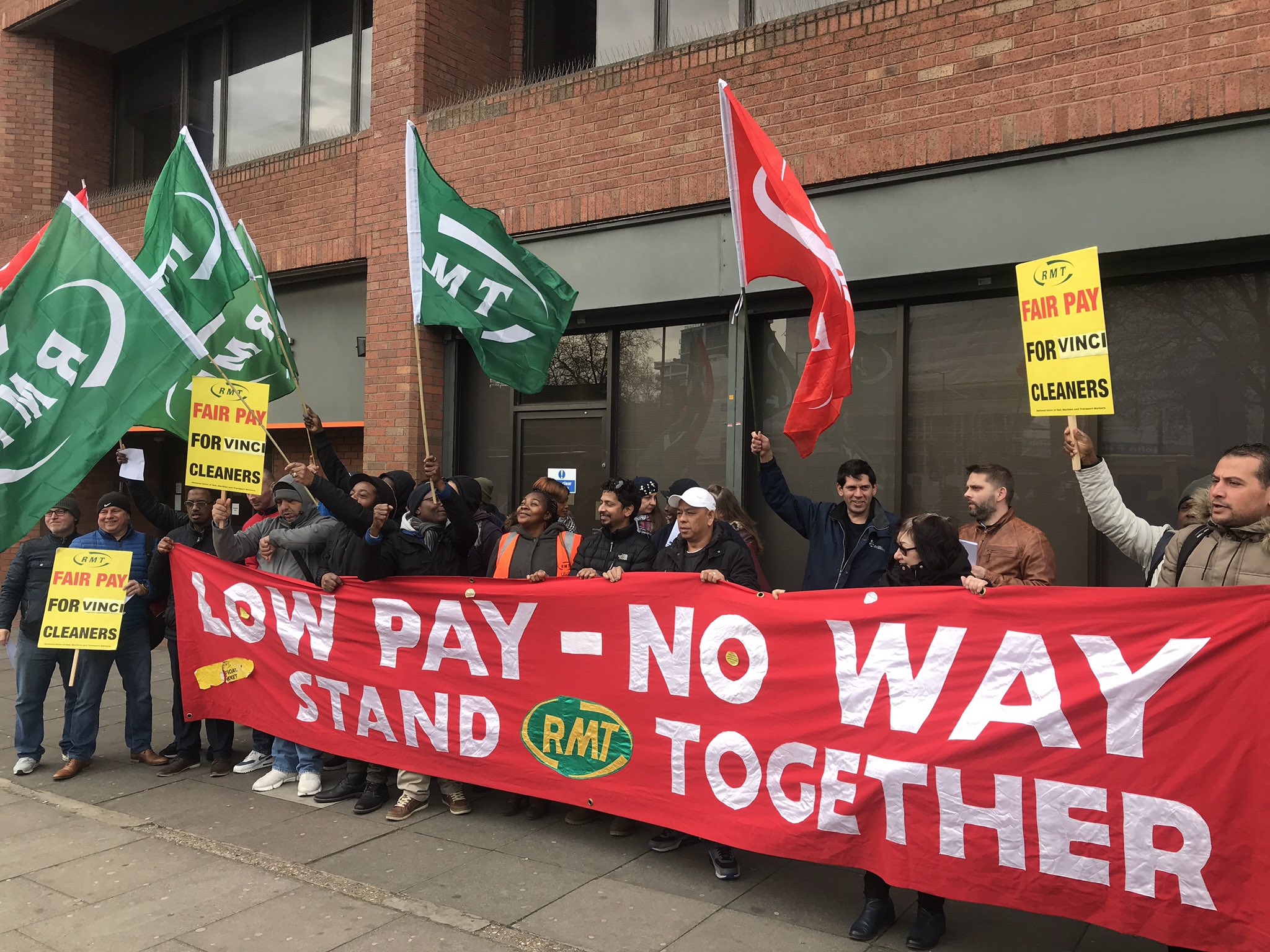On April 5, sanitation staff of the London Overground service protested outside the headquarters of the operator, Arriva Rail London’s (ARL), over low wages and a decline in the number of holidays. More than 40 cleaners participated in the demonstration, organized by the National Union of Rail, Maritime and Transport Workers (RMT). The workers had voted overwhelmingly for industrial action over pay and working conditions last month. The employees also went on a 48-hour strike on the following bank holiday weekend.
The workers are employed by Vinci Facilities, which in June 2018, secured a 12-month contract rom ARL. The latter is a private company responsible for the operation of the London Overground. Vinci Facilities was to deliver facility management services across the London Overground network, including cleaning, fault rectification and planned maintenance activities.
The workers said that ever since Vinci obtained the contract, their work conditions began to deteriorate. The workers were earlier employed by another company, Carillion. The protesters demanded an 80 pence pay hike to 11 pounds (USD 14.4) an hour. This was to bring their wages above the London Living Wage of 10.55 pounds (USD 13.81) an hour. RMT union representatives said the current contract led to the exploitation of the sanitation staff. They called on London’s mayor, Sadiq Khan, to compel ARL to restore, if not improve, their working conditions.
The union members decried the corporate stronghold over the privatized British Railways which, they feel, has a record of ignoring the workers’ employment conditions in favor of profits.
RMT general secretary Mick Cash said, “Rail companies who are making a fortune out of Britain’s privatized railways think nothing of treating their cleaning staff like dirt. It is disgusting and the travelling public will know full well just what an essential service the cleaning team plays on London Overground. These hardworking staff should be adequately rewarded for all their labor instead of being paid a pittance. This is a part of the overall RMT fight for basic workplace justice for staff doing the dirty jobs on the rail network.”
The British Railways was re-privatized in 1994, after being a state-owned industry since 1948. The stated aim of this re-privatization exercise was to increase efficiency and profitability. However, the transition did not achieve this aim as the privately-owned railways continued to be slow and overcrowded, especially in comparison to their state-owned counterparts in Germany, France, Italy and Spain. Meanwhile, the railways continued to rely on state subsidies to remain afloat. Between 2007 and 2011, the British taxpayers paid nearly 3 billion pounds (USD 3.9 billion) in subsidies, while its shareholders reaped a total profit of 504 million pounds (USD 659 billion). The fares paid by British passengers continue to be the highest in Europe, and the attempts at reducing costs by outsourcing of management contracts keep wages dismal.
While the workers wait on Vinci Facilities and ARL to initiate a peaceful dialogue and resolve their grievances, both the parties are yet to release a statement.





